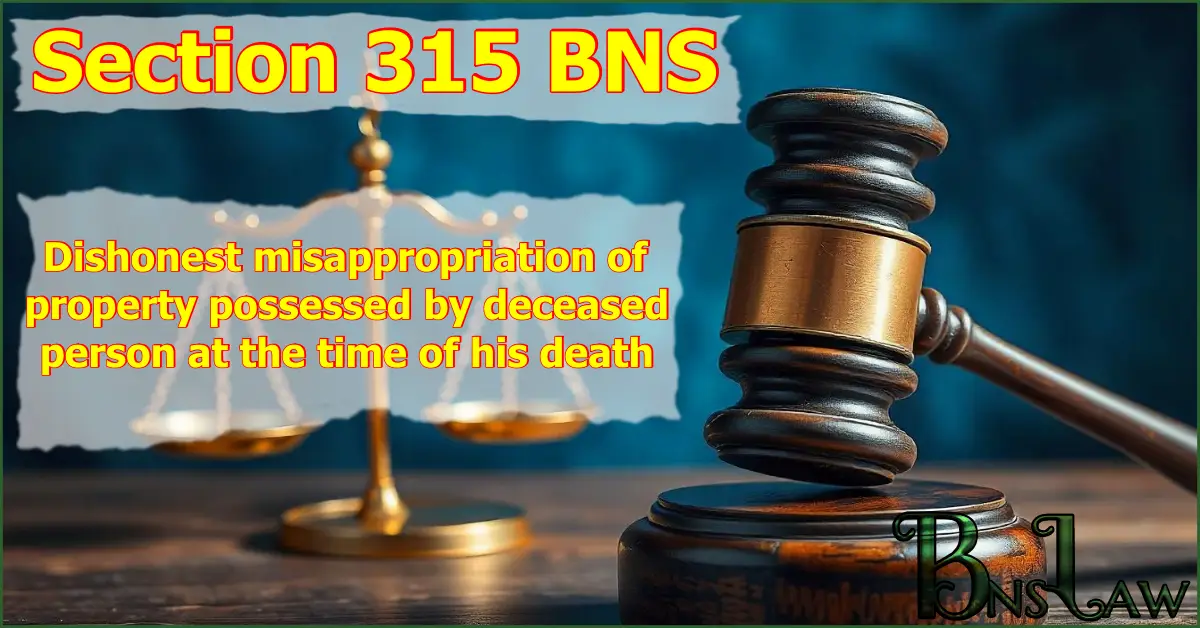Section 315 BNS | BNS 315
Whoever dishonestly misappropriates or converts to his own use any property, knowing that such property was in the possession of a deceased person at the time of that person’s decease, and has not since been in the possession of any person legally entitled to such possession, shall be punished with imprisonment of either description for a term which may extend to three years, and shall also be liable to fine, and if the offender at the time of such person’s decease was employed by him as a clerk or servant, the imprisonment may extend to seven years.
Illustration
Z dies in possession of furniture and money. His servant A, before the money comes into the possession of any person entitled to such possession, dishonestly misappropriates it. A has committed the offence defined in this section.
READ OTHER SECTIONS OF CHAPTER XVII — OF OFFENCES AGAINST PROPERTY
FAQs of BNS Section 315
-
315 BNS punishment and fine
Punishment and fine under Section 315 of the BNS: Imprisonment for 3 years and fine.
If by clerk or person employed by deceased: Imprisonment for 7 years. -
315 BNS cognizable or not
The offence under Section 315 of the BNS is non-cognizable.
-
315 BNS bailable or not
The offence under Section 315 of the BNS is bailable.
-
315 BNS trial court
Offence specified in Section 315 of the BNS is triable by the Magistrate of the first class.
Important Points
- Cognizable Offences: These are offences where a police officer can arrest a person without a warrant.
- Non-Cognizable Offences: These are offences where a police officer cannot arrest a person without a warrant.
- Bailable Offences: These are offences where the accused can get bail from the police station itself. All bailable offences are listed in the First Schedule of the Bharatiya Nagarik Suraksha Sanhita (BNSS).
- Non-Bailable Offences: Offences in which bail is not granted directly from the police station but after hearing the case in the court, the judge decides when bail will be granted. All non-bailable offences are listed in the first schedule of the Bharatiya Nagarik Suraksha Sanhita (BNSS).
- In the above FAQ, “trial court” means the court that has jurisdiction to try the offence.
- In the above FAQ, the expression “Magistrate of the first class” and “Any Magistrate” does not include Executive Magistrates.
Read other Sections of the BNS
Reference Link: New Criminal Laws (BNS), Ministry of Home Affairs







